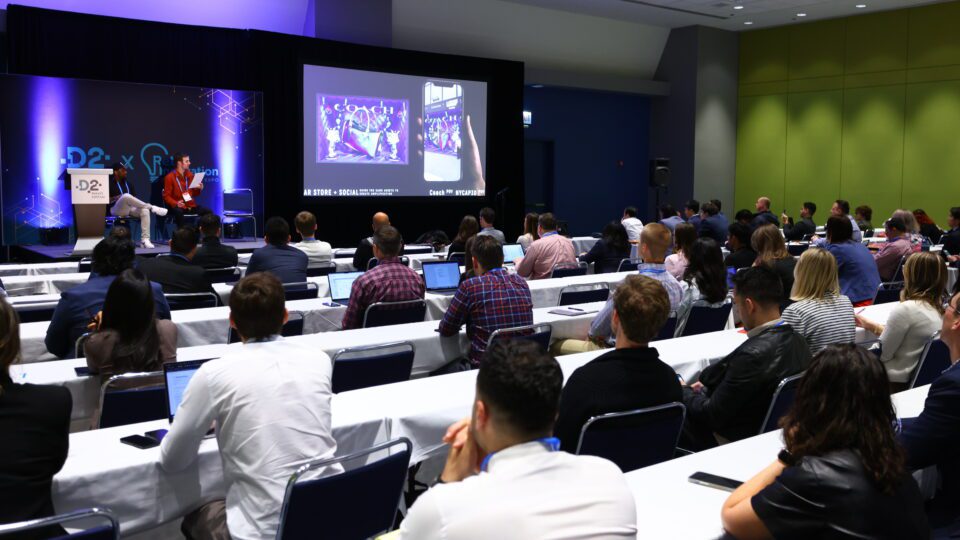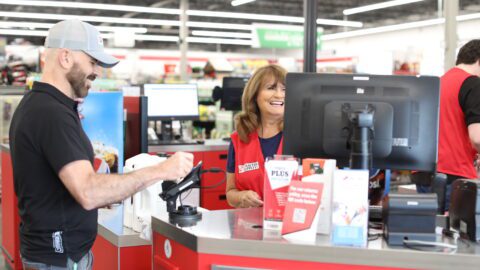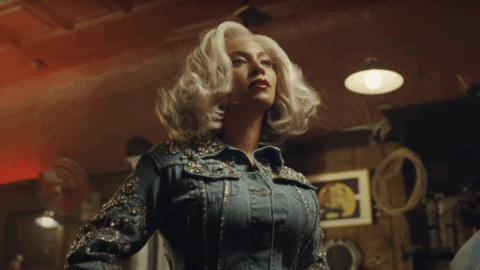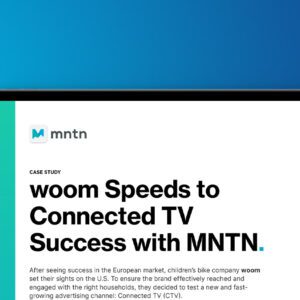A retailer’s marketing campaign is only as good as the creativity behind it, no matter how advanced the tools used to communicate it may be. This axiom is just as applicable to a modern metaverse-centered push as it is to an old-fashioned email campaign. It comes down to understanding and making the most of the medium, which Coach has taken to heart in its approach to digital innovation.
“I dedicated my life making substantive experiences for people using whatever tools are available,” said David Lehman, Digital Director at Coach, who spoke during the 2023 Retail Innovation Conference & Expo in Chicago on the topic of finding substance in the metaverse. “Old tools, new tools. I’m excited about AI, but I also love the great drawings that people do. What I’m interested in is the emotional connection.”
Lehman noted that finding new ways to create these connections is particularly important in the modern world, as even relatively recent trends have faded in favor of fresh technology. For instance, influencers are losing their pull with younger shoppers, while video games are gaining potential as digital marketing playgrounds.
“The metaverse today is nothing more than an extension of gaming,” said Lehman, discussing one of Coach’s metaverse activations. “First and foremost, we made it fun — we worked with gamification experts. All they do is study game mechanics, to understand what makes you want to do something over and over again. We made it visually compelling but also accessible. It’s not esoteric, it’s a Coach bag floating over a city that you can jump into.”
“Gamification is where the industry is going,” said David Morris, Experiential Consultant at NCYCAP3D, a digital agency that works with Coach, who co-presented with Lehman. “Content like this is what’s attracting people; the challenge is to integrate brand elements into the content.”
Bring Digital Products to Life With an Unlikely Partnership
One example of utilizing new technology to connect with consumers is the introduction of Bergdorf items into Maxis’ Sim games — originally as unlicensed mods. A programmer called Bergdorfverse made 3D models of Bergdorf coats and bags that could be downloaded, as well as marketing campaigns showing off the goods on in-game models. They continue to regularly update the collection with new products and colors, creating an ongoing opportunity to show off Coach collections in an organic medium that goes beyond traditional influencers.
“What do you do in this situation?” said Lehman. “You can go after them with your legal department. Good luck with that. Maybe you’ll make enemies in SimCity. Or you could sponsor them and say, ‘Hey, I want you to make more digital bags for Coach.’ One way or the other, the world’s only going to get more and more blurred in terms of digital and physical. It’s new territory that we’re all in.”
This same open, game-focused approach works for how companies should look at the metaverse, according to Lehman. The appeal of a virtual world is the same as any other video game — an opportunity to have experiences above and beyond what’s possible in real life. While you obviously want to use this opportunity to get your products in front of your audience, this shouldn’t come at the cost of making those experiences fun.
Creativity Unlocks the ‘Honey and Fried Chicken Experience’
Whether on the blockchain, in the metaverse or through in-store digital screens, Coach puts an emphasis on ensuring there is top-notch creativity behind all of its campaigns. Technology, while opening up new opportunities, is ultimately just one ingredient in the overall recipe.
“I love to cook,” said Lehman. “Innovations that have meant a lot to me are actually a combination of things. Salt and watermelon. Whiskey and pickle brine. Honey and fried chicken. The way we’re approaching this at Coach, when we think about AI or when we think about blockchain, is those are just tools. It’s really about the creativity we’re combining with that tool in order to do something new or something that matters. That’s where the honey and fried chicken experience starts to happen.”
Creativity also presents a moving target that requires constant testing and readjustment. Retailers need to constantly refine their strategies by both embracing new options and perfecting their use of older approaches.
“What we really learned is that innovation is organic,” said Lehman. “It’s an ongoing dialogue. It’s not one technology that you bring in all at once. Some of [Coach’s projects] were just tests, some of them revolved around campaigns. I think collectively what we’re seeing with this approach is that we’re never going to find one technology that solves all problems. But I feel like we’re staying the course and finding a process that’s making stuff better and better and better.”
Lehman and Morris also agreed about the importance of working with partners who are tolerant of the inevitable missteps that accompany truly creative work. “If you’re comfortable failing with the people you’re working with, you’re much more likely to be innovative,” said Lehman.
“Because you’re going to fail,” Morris added. “When you’re not worried about the KPI but interested in what we can put together, what can we create — that’s where the beauty comes out.”















